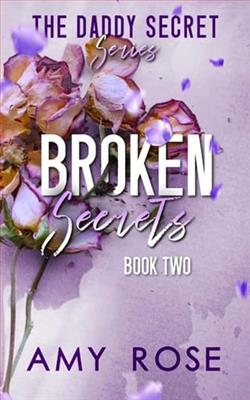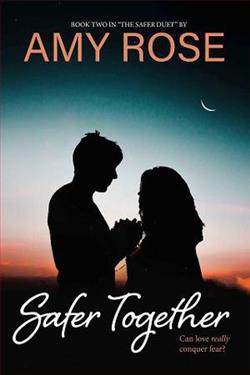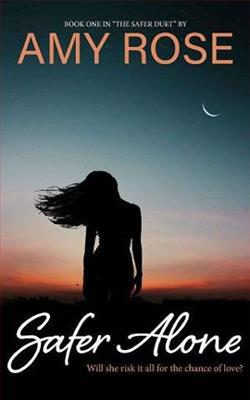Page 64 of The Compound
“We can look after ourselves. We’re not children. And anyway, nothing will happen to us. They always step in before things go too far.”
“That isn’t comforting.”
“I know what I’m doing,” she said. “I reckon I’ll be home by the end of the week.”
“You know what day it is?”
“Sure,” she said. “It’s Tuesday, September twentieth.”
September. The entire summer had passed, then. I had never imagined staying this long. But everyone would understand, when they watched what was happening. It wouldn’t make sense to leave when I was nearly at the end.
“How do you know?”
“My first Personal Reward was a notebook. I’ve been using Susie’s lip liner as a pencil.”
“You’re incredible, Becca.”
She was incredible. My first reward had been a comb. I didn’t have asingle thing that was of any use. I had never even considered finding a way to mark the time—I just accepted that I didn’t knowit.
“Thanks,” she said. “Well—goodbye.”
“Goodbye. Take care of yourself.”
Becca rounded the corner, glanced at me with disinterest, and moved deeper into the compound, toward the maze. Suddenly I was seized by such terror at the thought of never seeing him again that I wanted to stay where I was and hide, if only to avoid the final parting. But I heard him call my name and I went to meet him.
We stood shyly before each other, as though we were strangers. His skin had darkened in the past months, and though he had a lot of scruff, just short of a beard, his hair was still neat and well cared for. I felt a wave of shame over how I looked. I touched my hairline self-consciously, wondering if my bald spot was still visible.
“Don’t watch me, when you’re out there,” I said.
“Okay,” he said. “If you want.”
“Where do you live?” I asked.
He named the place, a city about three hours’ drive from my own.
“And you?”
I told him, and he said, “I could visit. If you were up for it.”
“I don’t know,” I said. “Maybe.” He looked so incredibly, profoundlyhurt, that I said, “What we had here was perfect, don’t you think? I don’t want a lesser version of it, on the outside.”
He didn’t answer. After a moment, I saw that he was crying.
I put my arms around him and rested my head in the crook of his shoulder. He held me tightly, and I could smell him, smoke and cedar; I felt the light tremors that ran through his body. He pulled away first and looked at me like I was still beautiful.
“Sam,” I said.
“Don’t mind me,” he said. “I’ll be fine.” A minute later, he was composed again, and wiped a hand across his face. We stood silently for a moment, and then I said, “I’ll walk you to the perimeter.”
He took my hand and slung his bag over his shoulder, and we walked together toward the boundary. His bag looked light: he hadn’t taken many of his rewards.
There was a part of me that didn’t really believe that he was going; I thought that he would reach the boundary, see the desert before him, and change his mind. But we were approaching the edge now and his step was steady.
“Take this with you,” I said, and reached into the pocket of my dressing gown. I gave him the duck feather that Susie had given each of us the night we killed our own dinner. He took it and smiled a little, tucking it into the pocket of his shirt. He looked out at the vast expanse of land, the sand and the dirt, cooked and bleached under the white sun, and I said, “What happened in the desert?”
He took his time before answering. “We were dropped off individually. We didn’t know where the others were, or where we were. I found Carlos first, and then Gav. Remember Gav? Well, he was useless. He kept leading us in the wrong direction—the same wrong direction, over and over. We found the others by pure chance. Tom had been bitten by then—he was attacked on his first night. All of us had found at least one other person by then, except Tom; he’d had to sleep alone. He was frantic when he found us. He kept talking about the dog, the attack, how he had killed it. He had broken its neck, he said, and then broke all four of its legs for good measure. I might not have believed him, but he kept a bonefrom its carcass. He didn’t let it out of his grasp the whole time we were wandering.
“On the second day, we were low on food and we were starting to worry that we’d run out before we found the compound. We’d been walking aimlessly for hours arguing with each other and no one was making any decisions. It was decided that we should vote for one person to take the lead. Tom felt strongly that it should be him. He kept holding up that bone, as if it meant something. He got into a fight, and some of the other boys had to intervene, including myself.”















